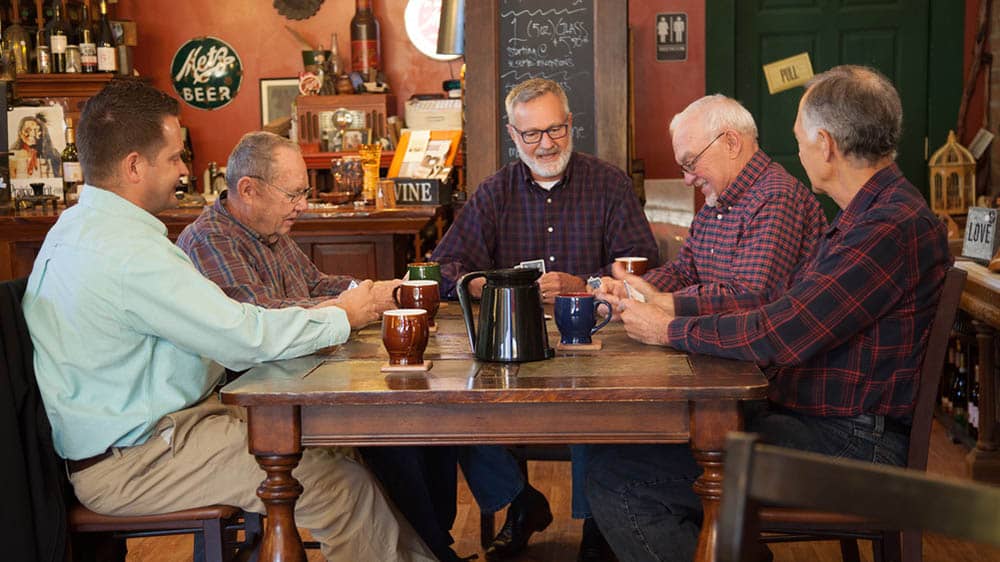

How Senior Volunteers Can Make a Difference in Their Communities
With Make a Difference Day approaching on October 26, it’s an ideal moment to consider how seniors can positively impact their communities. Volunteering helps those in need and provides significant rewards for the volunteers, particularly for older adults. Staying active, forming new connections, and supporting cognitive health are just a few of the benefits. Whether you’re a senior seeking an opportunity or a family caregiver wanting to inspire your loved one, there are numerous ways to participate, both in person and from home.
The Benefits of Volunteering for Seniors
Adults can experience feelings of insignificance as they get older. Volunteering can help older adults feel valued again. Here are just a few of the benefits:
- Cognitive health: Cognitive decline occurs with age. Volunteering can slow down that process by keeping the brain active and helping the older adult stay engaged.
- Loneliness: It’s common for senior adults to feel lonely or isolated, especially when living alone. Volunteering helps seniors connect with others and fosters a sense of belonging.
- Sense of purpose: Helping others is rewarding. Volunteering can give senior adults a renewed sense of purpose and self-worth, contributing to their overall mental well-being.
- Physical activity: Volunteer activities often require some physical activity, which increases mobility and overall health.
- Social connections: Meeting new people, making new friends, and belonging to a supportive community might just be some of the best benefits of volunteering for senior adults.
Finding Volunteer Opportunities
Not all volunteer opportunities will be the right fit. That’s why finding opportunities that match interests and abilities is key to a fulfilling experience. Here are some ideas for seniors and family caregivers to consider:
- Local community centers: Numerous community centers provide programs specifically designed for older adults. From leading a book club to assisting with organizing an event, there are plenty of opportunities to participate.
- Hospitals and schools: Most hospitals and schools have lots of volunteer opportunities. It might be greeting visitors at the front desk or cheering up patients at a local hospital. Or maybe it’s reading to students, reshelving books, or assisting with after-school programs.
- Nonprofit organizations: Numerous nonprofits actively look for senior volunteers to fill various roles, including mentoring and providing administrative support.
- Online platforms: Several online platforms will match seniors with opportunities, many of which can be done from home. Volunteer Match and AARP’s Create the Good are two such platforms.
Volunteering From Home
Just because a senior adult has mobility issues doesn’t mean they can’t make an impact from home. Here are a few ways they can volunteer. With a little creativity, the list is endless.
- Virtual tutoring and mentoring: Virtual meeting platforms such as Microsoft Teams, Zoom, and Webex Meetings have made connecting with people in other locations possible. Now, seniors who are unable to meet in person can tutor students online or mentor younger professionals via video chat.
- AARP Foundation Tax-Aide: This program offers free tax-filing assistance to older adults with low to moderate incomes. Volunteering with this program requires no experience, as the organization provides training and support.
- Creating and donating: Seniors can share their talents to make a difference. They can craft blankets, hats, or scarves for local shelters, assemble care packages for military personnel who are away from their families, or write letters to homebound patients. The possibilities are limitless.
How Caregivers Can Support Seniors in Volunteering
Older adults often require some encouragement and support to explore volunteer opportunities that pique their interest. Here are some ways caregivers can help facilitate this process:
- Connections: Caregivers and family members can help seniors find volunteer opportunities that interest them and match their physical abilities.
- Transportation and technology: Many seniors may want to volunteer, but they lack transportation or are unable to set up the technology to volunteer remotely. Caregivers can help by providing transportation and assistance while at those volunteer locations or setting up the technology needed for remote volunteering.
- Encouragement: Encouraging senior adults to take that first step is often all it takes. Caregivers and family members can inspire seniors to take that first step toward making a positive impact.
Celebrating Make a Difference Day is a fantastic opportunity for seniors to engage and contribute to their communities. This day is dedicated to helping others, and every action counts, no matter how small. Whether volunteering at a food bank, offering online assistance, or creating something meaningful for someone in need, each effort is significant.
Final Thoughts: Seniors Make a Lasting Impact Through Volunteering
Seniors have an endless supply of experience, knowledge, and compassion to share. By engaging in volunteer work, older adults remain active, make new connections, and discover a renewed sense of purpose. Whether their contributions are large or small, senior adults can truly make an impact. Volunteering not only enhances the lives of those receiving help but also enriches the lives of the volunteers themselves.
Additional Resources for Volunteering
Do you need a little help finding volunteer opportunities? Here’s a list of additional resources:
- AmeriCorps: The AmeriCorps Seniors RSVP program connects thousands of Americans age 55 and older with organizations that drive positive change in communities nationwide.
- Smithsonian Institution: As one of the largest education, museum, and research complexes in the world, the Smithsonian Institution seeks assistance from volunteers. While some roles may require specific expertise or skills, many do not. It’s an excellent opportunity for anyone interested in in-person or online volunteering.
- Habitat for Humanity: This organization provides older adults with the chance to apply their construction skills by building homes for those in need. There are even opportunities to volunteer at a Habitat for Humanity ReStore location.
- National Park Service: The National Park Service offers opportunities to volunteer to preserve and maintain parks and monuments throughout the country.
How Right at Home Can Help
Right at Home offers a wide range of in-home care services. Our caregivers can provide light housekeeping, medication reminders, and transportation to appointments. They can also help with ambulation and hygiene as needed. Use our office locator to find your local Right at Home and ask for a FREE care consultation today.
Interested in receiving ongoing information, advice, and tips related to the aging journey? Subscribe to our monthly Caring Right at Home e-newsletter today!







